“Science is a long-term human effort”: a conversation with the 4 researchers from CREAF appointed highly cited 2020

The need for inclusive science, ranking bias, brain loss, and the responsibility to train people are the focus of a debate with the 4 CREAF researchers included in the Clarivate index of The Web of Science’s Clarivate index 2020 .
Jordi Martínez-Vilalta, Maurizio Mencuccini, Josep Peñuelas and Jordi Sardans are four researchers with few features in common and many points of connection: Martínez-Vilalta was a disciple of Mencuccini and Peñuelas and Sardans are an absolute professional tandem. Four professionals who feel part of a continuum initiated by their predecessors and who understand science as "a long-term human effort", in the evocative words of Martínez-Vilalta.
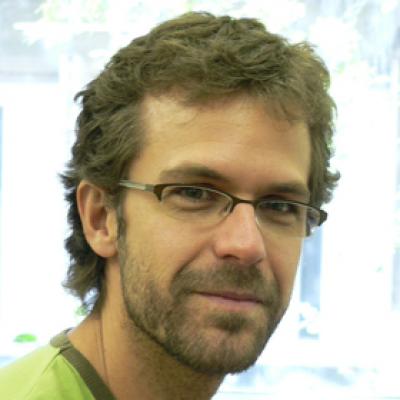

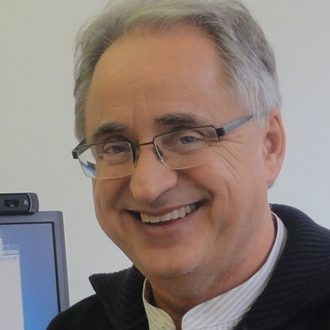
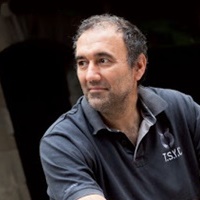
Beyond recognition
Josep Peñuelas. “Being highly cited in the world is a recognition for us and the people we work with, after years of devoting our time and efforts to advancing our fields of knowledge as much as possible. It is also for our field of research. Of course it could not be otherwise, given the key role of ecology and plant and animal science.”
Jordi Martínez-Vilalta. “It also means working in large areas of plant and animal ecology and science that generate interest and discussion. And this is shown in the evaluation of the Clarivate index.”
Maurizio Mencuccini. “Looking back, the impact of my discipline has changed dramatically since I started 20 years ago. Originally it was just plant science and it is no longer like that: now we constantly interact with scientists specializing in global change, with physics professionals experts in modeling the Earth ... it is much more interdisciplinary. Therefore, our presence in this ranking indicates the integration of the discipline with climate change and related topics, rather than plant science.”
Jordi Martínez-Vilalta. “Although the name of the field used to decide which researchers are most cited has not changed and is still called plant and animal science... "
Jordi Sardans. "My case is a little different because I'm classified in the Cross Field area and because my research ranges from agriculture to natural ecosystems and people. I study the role of chemical components in the environment and publish in various types of journals, with a broad view compared to other colleagues.”
Transversality and disciplines without borders
Josep Peñuelas. “Now all areas of knowledge are very connected and interrelated. We work with professionals in computer science, soil, social science, economics... There are no borders, interdisciplinarity is clearly enriching our work, as Maurizio said".
Jordi Martínez-Vilalta. "While it is interesting to note that the way an index such as the Higly cited in Clarivate Web of Science is calculated has not changed. It doesn't show interconnection and is still divided into very classical disciplines. I understand that it is not easy to see it from a new perspective."
Josep Peñuelas. "Maybe we should push for a change in the way they rank..."
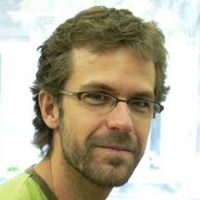
"We have changed according to our fields of study. The fact that we are highly cited means that we have been able to understand the direction that our field of research was taking. And we have evolved our research, or we have contributed slightly to our field having evolved towards specific areas.”
JORDI MARTÍNEZ-VILALTA, investigador del CREAF.
Maurizio Mencuccini. “When we studied at university, we were trained in individual disciplines. Of course, Jordi Sardans is the best example of the success of someone who works transversally in an area where diverse fields intersect. It's a task that we all try, with greater or lesser success. However, thinking of the new generations, we should be training scientists suitable for interdisciplinary research fields and this is very difficult to do and probably reflects the limitations of the university system, which is still very compartmentalized."
Jordi Sardans. “My case is a bit exceptional, because I have chosen the chemical view of environmental problems, which can focus on many different points of view. And I'm trying to come up with a broad proposal with one thing in common, which is the use of chemistry by ecosystems. That's probably why my research has a place in different publications."
Looking at science with the student sight
Josep Peñuelas. "The transversality of disciplines and the evolution of science that Maurizio has mentioned must affect the way we teach. We should provide students with resources to take advantage of opportunities for scientific research. And without losing the disciplinary diversity, which has a positive synergy effect that we should make the most of, because it’s an advantage. And diversity also means that professionals are needed to drive bold and daring tasks in specific areas."
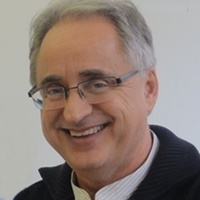
"I am concerned that we are forgetting specialists in Botany and Zoology: our colleagues in botanical or zoological taxonomy will never be highly cited in scientific articles based on the criteria defined by the indexes. And it's because we belong to a very large community and are more likely to be cited. Therefore, the fact of being widely cited often has to do with the way we classify science and rankings".
JOSEP PEÑUELAS, researcher from CSIC at CREAF.
Jordi Martínez-Vilalta. "Science works on the basis of problems. We are a good example: all four of us work in similar areas of the biology of global change, although we have our own emphasis. And yet, as Maurizio has pointed out, we have quite a different background. Jordi Sardans comes from Biochemistry, Josep Peñuelas from Biology, Maurizio Mencuccini from forestry and I studied Environmental Sciences. There is a key question: to what extent does the way we organize knowledge and how we teach in college prepare people to face the cross-cutting problems they are sure to encounter, not only in their scientific careers, but in their professional environment? And we can think that one solution is to mix professionals with different experiences, but we will probably need people trained in these cross-cutting areas. Environmental science is a good example, but not enough. Clearly, we need to change the way we organize knowledge in the university.”
Maurizio Mencuccini. "We all agree that scientific disciplines are important and that specialization is essential to advancing basic science. But there is also a scope for more integrative disciplines, which break down barriers. Our students tend to see the world in a more transversal way. They want to use tools and resources that we are not trained in: I am talking about remote sensing, for example. I never studied it, it was not even a possibility because it was a field of Computer Science and Physics. And now we have a huge range of data and information resources to provide optimal solutions to problems and we need to identify how to use them. The younger generations are very aware of this awareness of multiple data sources, so we should organize some more open Degrees and give them the opportunity. Today, training becomes easier.”
Losing bright brains along the way
Josep Peñuelas. "As for young people, the four of us today work with very well-prepared scientists, who should have it easier to stabilize and have better job prospects. I break a lance to solve it, to be able to have a much better science for society. We need to review the way we prepare scientists and pass on science, and the way we reward their work by making it possible.”
Jordi Martínez-Vilalta. "It bothers me that the brightest students are leaving science because they consider it a very competitive career and because they find better options outside of science. We need to work to make this path easier and to create opportunities. And that connects with the kind of people who dedicate their careers to science: it’s a mistake to think we’re looking for a specific type of person to do research. We should have a much broader and more diverse vision, because it would make the scientific path more attractive to people who have things to contribute. I’m talking about women scientists, but also others outside of the usual standards. We should broaden our criteria and the way we hire ... something difficult because it has to do with the way universities and research centers are organized...".
A bias that is an inheritance
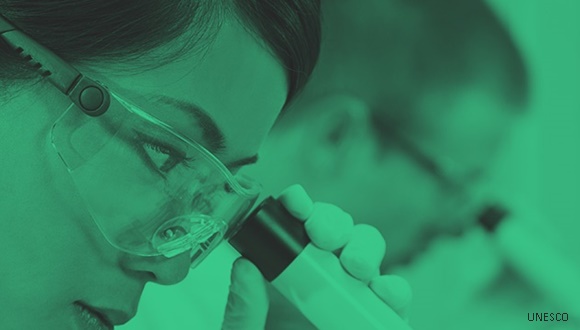
Maurizio Mencuccini. “Yes, this is one of the main problems we face today and it is an implicit legacy or bias that we find in the development of the scientific career, from the initial stages, the doctorate and the first steps of professional science. We are becoming more and more aware of this. It is a pity that many bright and well-prepared women decide to give up science because they feel intimidated or perceive it to be too competitive. There is a clear gender bias, although it has a broader scope: it has been called by Jordi Sardans and is the fact that the scientists who have contributed most to a discipline often publish little, although they are very good in theory or in developing methods. They can be men or women, but they are not playing the game of science.
“Therefore, when the performance of scientists is evaluated only according to the number of publications, the promotion of an‘ efficient ’science is to the detriment of redundancy in the discipline. In the long run, we lose efficiency because we do not develop methods or theory. It is to the detriment of redundancy and the opportunity to incorporate professionals who are not directly involved in this game. I think redundancy is a fundamental ecological problem, it is very important for ecosystems. And we know that redundancy is a fundamental property of any ecological system, including science."

"There's a gender bias beyond that: there’s the way science works, which is very competitive, aggressive, and very publication-focused."
MAURIZIO MENCUCCINI, investigador del CREAF.
Beyond gender
Jordi Martínez-Vilalta. "A very relevant barrier is the importance we give to counting things, to the measures of productivity little nuanced. We are now in the recognized side, but we need to be aware of how we use this information, the great impact it has on how science works, and how it reaches society and young scientists. Sometimes we take trivialities into account, such as the number of publications: it is not very wise to count things without looking at their quality, and yet the quantity-based index has visibility. This is only part of the story. There are aspects that are not shown. However, I am not claiming to return to the operation of 40 years ago, when we could not follow up...”.
Josep Peñuelas. "I agree. But redundancy, incremental science, confirmation is also key. Without repetition we could not secure the discoveries, science would not move forward with strong steps. When I was a young scientist starting out, the member of an opposition tribunal told me that movement is shown by walking, which is a phrase. "
Jordi Martínez-Vilalta. "Yes, we are excluding people from science."
Jordi Peñuelas. "In addition to gender bias, I am concerned about excluding poor countries. We pay attention to the United States, Europe, and now China, but we forget about science professionals in South America, India, and Africa, and not just when it comes to science. I would say that poverty and lack of education are the worst problems in our world, even for ecology. I would like to work against poverty and lack of training for a better world and a better science. Gender worries me, but I also detect other problems."
A background career started by others
Maurizio Mencuccini. "In my case, the opportunity and the luck had to do with how and why I dedicate myself to the current field of study. When I started, I visited a research institute in the UK and there a scientist believed that the topic I was studying (the use of water in plants and the effect of water stress) would have to do with modeling. of ecosystems, not only in the physiology and function of plants. I mean if we’re successful today it’s because previous professionals were smart enough to guide us, to tell us which areas to explore. In my case, they were two British scientists."
Jordi Martínez-Vilalta. "And ... by the way, may I ask who they were?"
Maurizio Mencuccini. "John Grace and Paul Jarvis."
Jordi Martínez-Vilalta. "It could have guessed it. We are part of this continuum, of our mentors, of the next generations. Science is a long-term human effort. We start from previous references. When I started, I happened to talk to Jaume Terradas and this allowed me to start working with Josep Piñol, who introduced me to the water relations of plants and hydraulics. Then I became a postdoctoral student with Maurizio Mencuccini, who introduced me more in the field of knowledge. These are still the main topics I work on, but when I started this was a very peripheral field of knowledge. It wasn't so obvious...”.
Josep Peñuelas. "It's a very good observation: we should recognize much more the role of our ancestors. They did their job very well, which is a relevant part of ours. I am very indebted to Ramon Margalef, Chris Field and Jaume Terradas, for example”.

"One of the objectives of our research is to take a step forward in some classic ecological paradigms, using more elemental chemical elements, which are the material that ecosystems need."
JORDI SARDANS, investigador del CREAF.
Jordi Sardans. "In my case, concluding that water is important for agriculture is based on the use of the most basic sources of life in terrestrial and aquatic ecosystems. I appreciated that we probably have a robust tool for doing applied or observational science, but also for providing Ecology with methods that can be a revolution. We are researching different aspects from different points of view. One of my goals is to take a step forward in some classic ecological paradigms, using more basic chemical elements, which are the material that ecosystems need.”
Related news
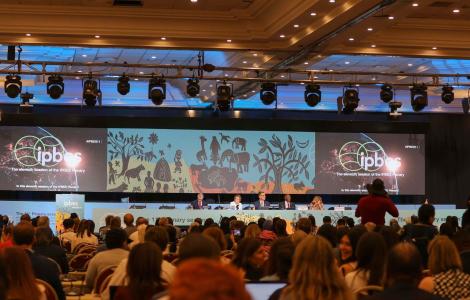
IPBES publishes two reports to transform the way we engage with nature, conserve it and survive




